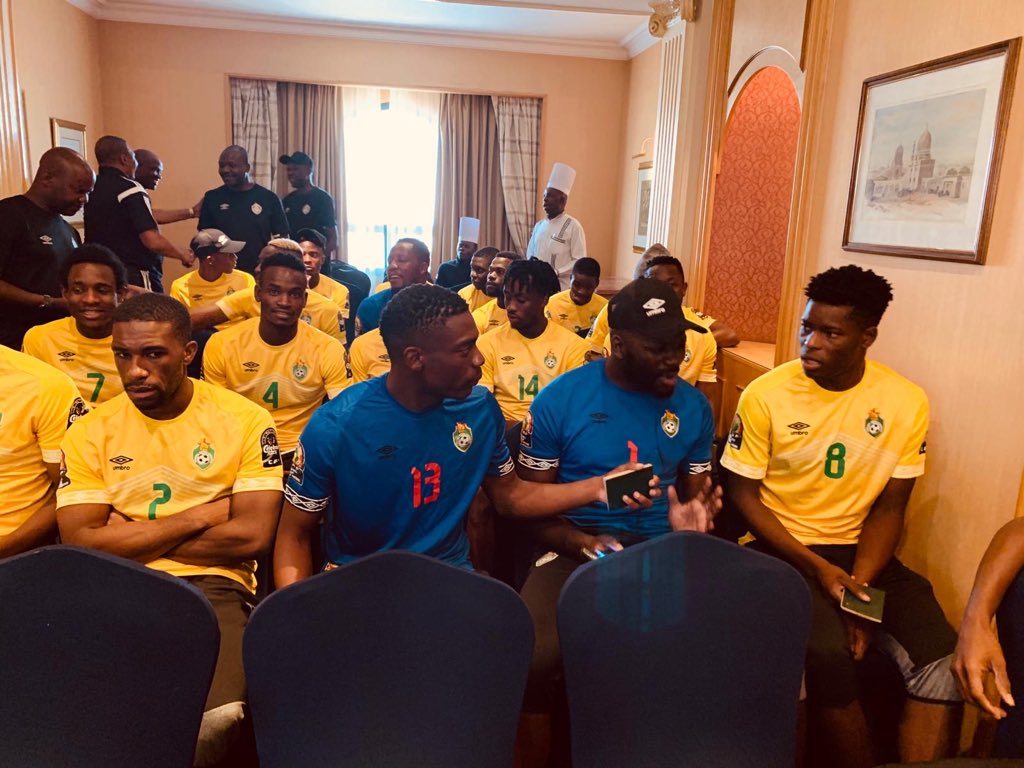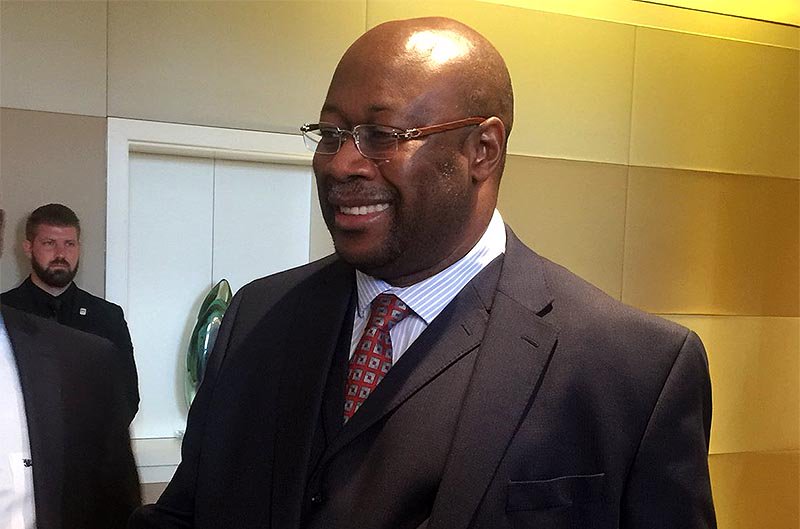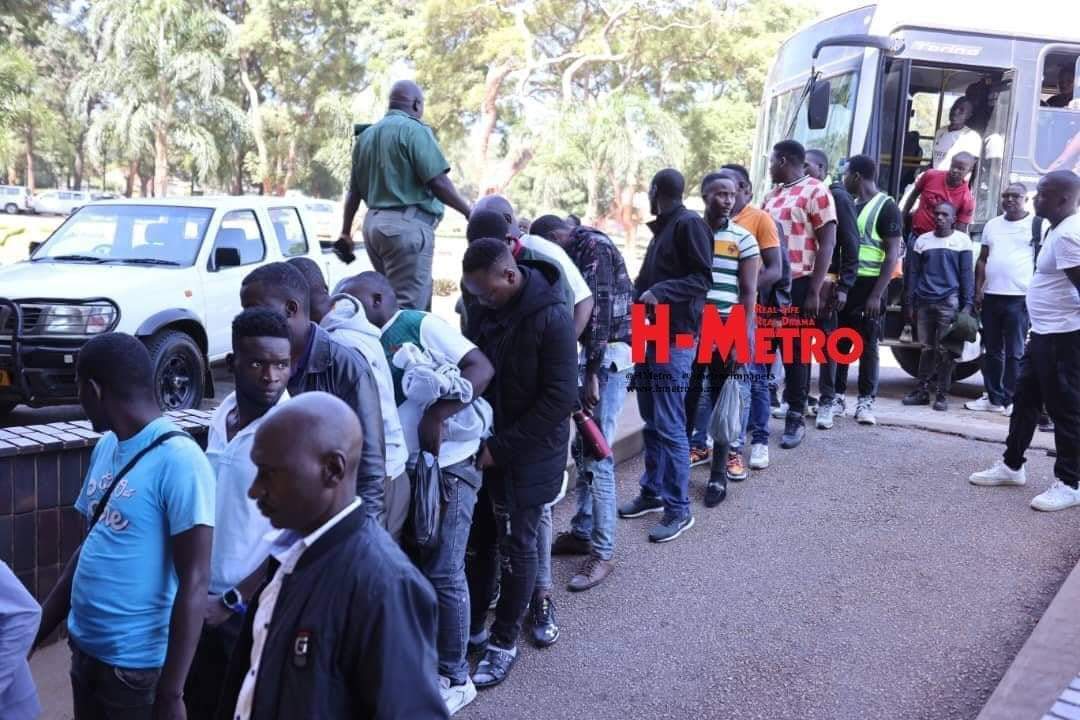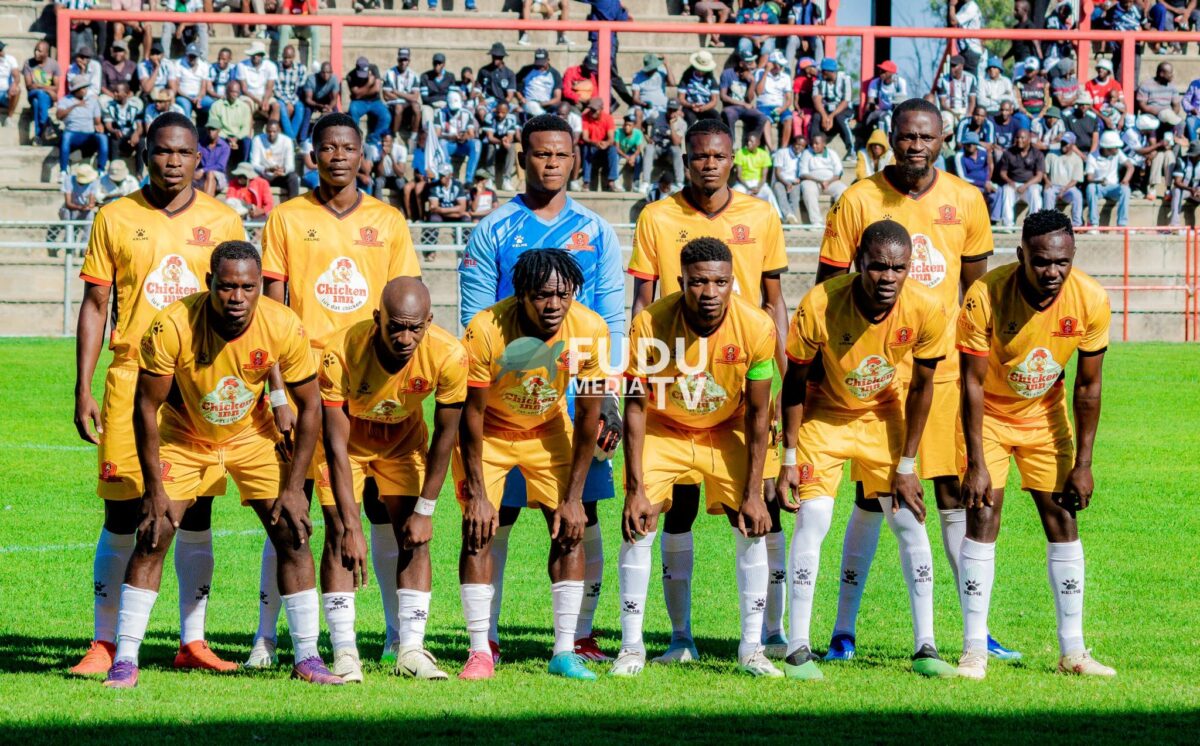JOHANNESBURG, South Africa – The Confederation of African Football (CAF) has held talks with Zimbabwean players, urging them to fulfil their Africa Cup of Nations finals opener against Egypt on Friday night after threats to strike.
CAF vice president Amaju Pinnick on Thursday night led a delegation from the continent’s football governing body for talks with Zimbabwean player representatives – captain Knowledge Musona and his deputy, Ovidy Karuru.
The players want to be paid US$9,000 participation fees at the tournament and are angry that injured players are paying their own medical bills.
The mood in the camp has not been helped by revelations that ZIFA chartered a jet to fly at least 100 people to Egypt, all expenses paid. In the group are ZIFA officials, journalists and supporters.
The players said ZIFA had promised that the money would be paid on Tuesday.
Acting Sports Minister Kazembe Kazembe addressed the players before the arrival of a CAF delegation, telling them to “play for those people at home, especially President Mnangagwa who has been supporting your cause.”
BBC correspondent Osasu Obayiuwana said on Twitter: “I’m made to understand that Amaju, the CAF first vice president, had to plead with the players not to boycott today’s match against Egypt.
“Amaju, who is also the AFCON organising committee chairman, is asking the finance department of CAF to release the balance of Zimbabwe’s appearance fee so that outstanding player allowances are settled.
“Amaju was worried about the damage to the corporate brand of the tournament, if Zimbabwe boycotted the opener.”
The Warriors missed their late afternoon training session on Thursday while the talks went on.
Musona told reporters they were happy their matter was being attended to, adding: “It’s sad that instead of us focusing on the match we have spent a lot of time trying to deal with these issues, but we can promise you that we will give it our best against Egypt.”
Defending champions Cameroon are the other team whose players have refused to play in a dispute over allowances.















